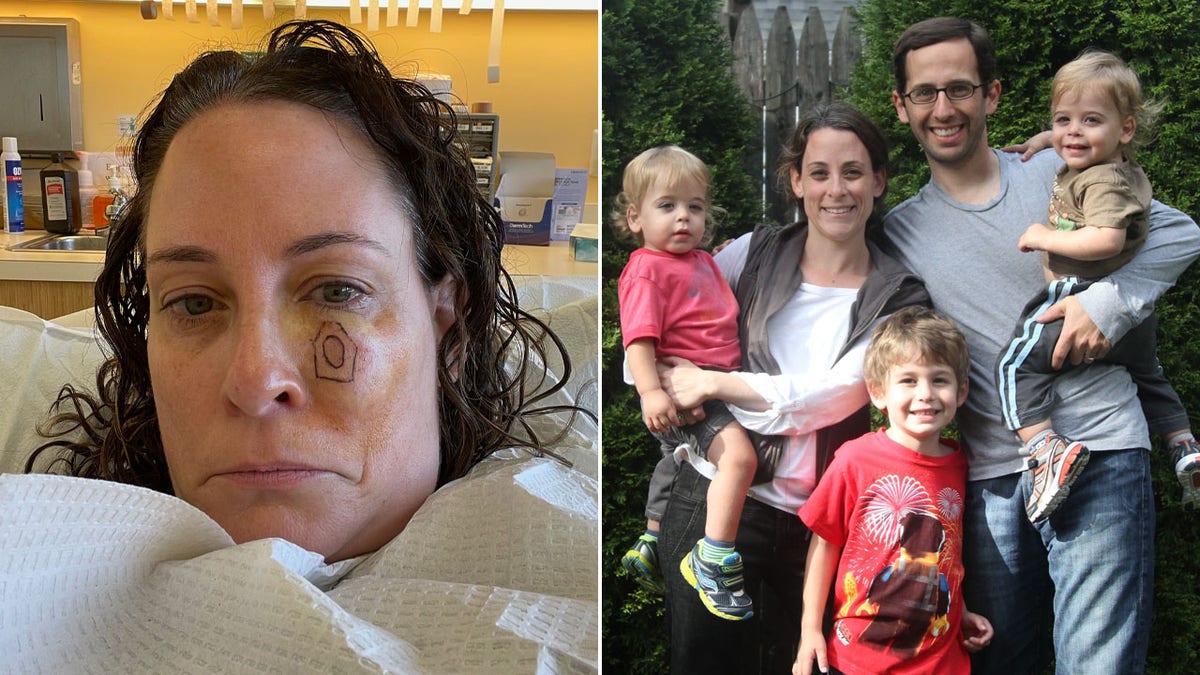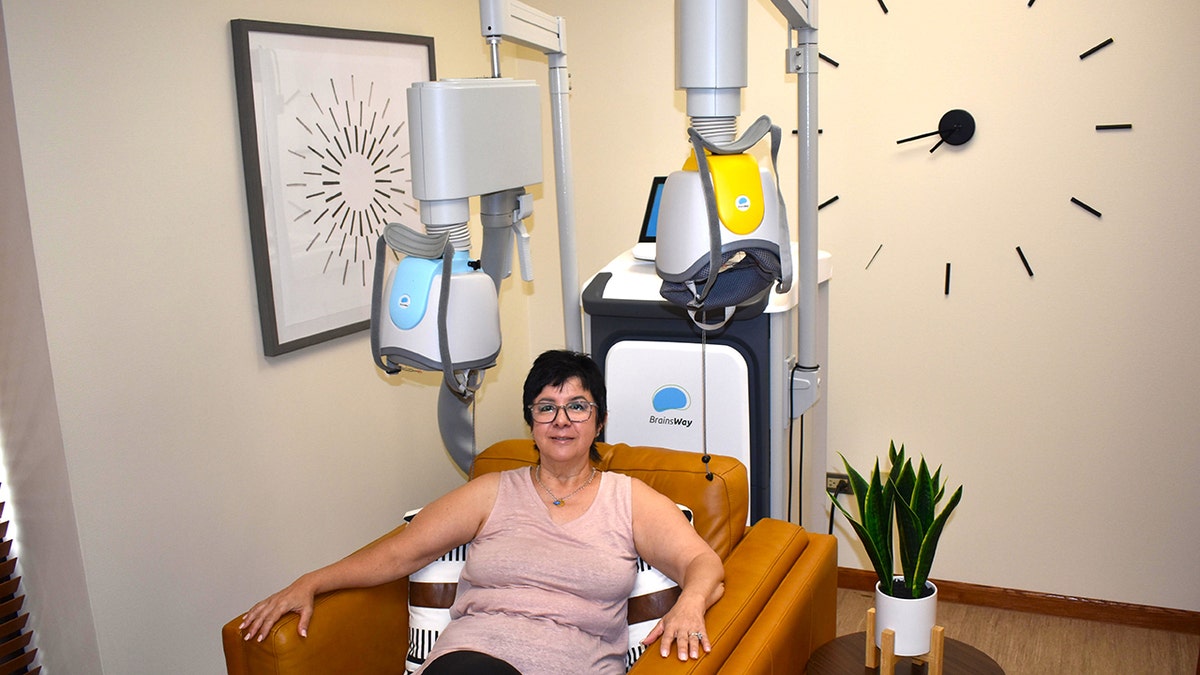Health
What to Know About the Stanford President’s Resignation

Marc Tessier-Lavigne, a renowned neuroscientist, announced on Wednesday that he would step down from his position as president of Stanford University, after the release of an external review of his scientific work found fault with several high-profile journal articles published under his purview.
A committee drafted the review in response to allegations that Dr. Tessier-Lavigne was involved in scientific misconduct. Five well-known biologists and neuroscientists were on the committee, including Randy Schekman, who won the 2013 Nobel Prize for Physiology or Medicine, and Shirley Tilghman, who served as president of Princeton University from 2001 to 2013. In its report, which focused on 12 academic papers, the committee said there was no evidence that Dr. Tessier-Lavigne had knowingly falsified data or withheld such information from the public.
But the committee noted that “multiple members of Dr. Tessier-Lavigne’s labs over the years appear to have manipulated research data and/or fallen short of accepted scientific practices,” pointing out multiple errors in the five papers for which Dr. Tessier-Lavigne had led or overseen the research. In response, Dr. Tessier-Lavigne vowed to retract three of the five articles, request major corrections for two and step down from his position as president.
“I am gratified that the panel concluded I did not engage in any fraud or falsification of scientific data,” Dr. Tessier-Lavigne said in a statement, adding: “Although I was unaware of these issues, I want to be clear that I take responsibility for the work of my lab members.”
What were the allegations?
In 2015, numerous concerns were raised on the website PubPeer regarding the image data published in three papers — one in the journal Cell in 1999 and two in the journal Science in 2001 — on which Dr. Tessier-Lavigne had served as a lead author. The concerns varied, pointing out what appeared to be the digital editing and manipulation of image backgrounds, the duplication of particular images and the creation of composite images that obscured the purity of the scientific data.
These concerns were revisited in 2022 by several media outlets, including Stanford’s student newspaper, The Stanford Daily, which cast further scrutiny on Dr. Tessier-Lavigne’s research. The outlets drew attention to images in more than a dozen different papers that Dr. Tessier-Lavigne had worked on. Although some images seemed to have had little impact on the results of the studies, others appeared to have substantively affected the findings.
As a result, Stanford’s board of trustees opened an investigation into Dr. Tessier-Lavigne’s scientific work and organized the five-member expert panel to review the allegations.
In early 2023, The Stanford Daily published further allegations that, in 2009, when Dr. Tessier-Lavigne was working as an executive at the biotechnology company Genentech, he had published a paper in the journal Nature that contained falsified data. Relying on unnamed sources, the student newspaper suggested that a research review committee had conducted an internal investigation at Genentech into the 2009 paper and found evidence of data falsification. The Stanford Daily also suggested that Dr. Tessier-Lavigne had been made aware of these issues but prevented them from being released to the public.
Dr. Tessier-Lavigne strongly denied the allegations.
Was there fraud?
After meeting 50 times and collecting 50,000 documents, the five-member expert panel released its findings on Wednesday. It concluded that, although there was image manipulation and evidence of methodological carelessness in each of the papers it examined, Dr. Tessier-Lavigne had not engaged in any of this himself and had not “knowingly countenanced others doing so.”
He was also absolved of the most serious allegation: data falsification in his 2009 Nature paper. The committee noted that the research “lacked the rigor expected for a paper of such potential consequence” and determined that Dr. Tessier-Lavigne could have been more forthright about the paper’s shortcomings, but it concluded that the allegations of fraud were false.
In the paper, the researchers claimed to have found a chain reaction of brain proteins, including one called Death Receptor 6, that contributed to the development of Alzheimer’s disease. If the research held up, it promised to present a new avenue for a better understanding and treatment of the disease.
“There was some excitement that this could have been an alternative way of thinking about the disease,” said Dr. Matthew Schrag, a neurologist at Vanderbilt University.
However, further research — some published by Dr. Tessier-Lavigne’s lab — found that the experiments highlighting the role of the DR6 chain reaction in Alzheimer’s did not prove what was claimed. This was true, in part, because of unforeseen side effects of the inhibitors that were used in the experiments, as well as impurities in the proteins that were used.
The expert panel suggested that, instead of publishing more articles that disproved the results of the 2009 paper, Dr. Tessier-Lavigne could have issued a direct correction or retraction. But the report determined that the allegations of fraud, first published in The Stanford Daily based on the testimony of largely unnamed sources (some of whom the committee was unable to identify), conflated an unrelated instance of scientific misconduct in Dr. Tessier-Lavigne’s laboratory with the 2009 paper.
Dr. Schrag, who found images that looked to be duplicates in the 2009 study and flagged them publicly in February, said that the study simply was not rigorous enough. “The quality of the work was not high,” said Dr. Schrag, stressing that he was speaking for himself and not his university.
What is ‘image manipulation’?
Of the 12 papers the expert committee reviewed, it found “manipulation of research data” in nearly all of them. According to the report, such manipulation constitutes a range of practices, including digitally altering images, splicing panels, using data from unrelated experiments, duplicating data and digitally altering the appearance of proteins. But the committee granted that some of the examples of manipulation could have been inadvertent, or were perhaps an attempt at a “beautification” of the results.
Mike Rossner, president of the biomedical image manipulation consulting company Image Data Integrity, said that he spent 12 years screening manuscripts accepted for publication in The Journal of Cell Biology between 2002 and 2013. He found that around 25 percent of papers “had some sort of manipulation that violated our guidelines and had to be corrected before publication.” In most instances, he said, the issues were inadvertent and didn’t affect the interpretation of the data. But in about 1 percent of cases the paper needed to be pulled.
“There is this pattern emerging of this not being as rare as we want to believe that it is,” Dr. Schrag said.
Is ‘laboratory culture’ to blame?
The many instances of image manipulation prompted the expert committee to speak with postdoctoral researchers who had worked under Dr. Tessier-Lavigne at different times and at different institutions, including Stanford and Genentech.
Many praised Dr. Tessier-Lavigne’s intellectual acuity and commitment to scientific rigor, but many also described a lab culture that incentivized good results and successful experiments. They felt that the lab, and Dr. Tessier-Lavigne, “tended to reward the ‘winners’ (that is, postdocs who could generate favorable results) and marginalize or diminish the ‘losers’ (that is, postdocs who were unable or struggled to generate such data),” the report noted.
The committee determined that Dr. Tessier-Lavigne did not desire this dynamic, but that it may have contributed to the high rate of data manipulation that came out of his labs.
Dr. Tessier-Lavigne, who will step down as president on Aug. 31 but will remain a biology professor at Stanford, said in an email to students: “While I continually maintain a critical eye on all the science in my lab, I have also always operated my lab on trust — trust in my students and postdocs, and trust that the data they were presenting to me was real and accurate. Going forward, I will be further tightening controls.”

Health
7 important health stories you might have missed this week: Catch up here

Every day of the week, Fox News Digital publishes a range of health pieces to keep you up-to-date on the most important wellness news.
We cover cutting-edge medical research, breakthrough medications, mental health challenges, personal medical dramas and more.
In case you missed them, here are a few of our biggest health stories from this week.
CLICK HERE TO SIGN UP FOR OUR HEALTH NEWSLETTER
You can see a full list of recent health pieces at http://www.foxnews/health.
1. Hunger could be tied to sleep, expert says
If you’re feeling hungrier than usual lately, your sleep routine could be the culprit. A nutritional biologist offers tips for regulating sleep and curbing unhealthy cravings. Click here to get the story.
The food you eat can determine the quality of your sleep, according to experts. Here are the latest findings. (iStock)
2. Health agencies issue bird flu update: ‘Alert, not alarmed’
The CDC and WebMD teamed up this week to deliver an hour-long update on Thursday about the current bird flu outbreak. Fox News Digital breaks down the most important points. Click here to get the story.

Experts assured the public that drinking pasteurized milk remains safe. (iStock)
3. Melanoma patients share their stories
For Skin Cancer Awareness Month, two melanoma patients are speaking up about their symptoms, treatment and prevention tips to help others avoid the potentially deadly disease. Click here to get the story.

Abby Weiner, pictured at left and at right with her husband and sons, was diagnosed with melanoma in Oct. 2023. (Abby Weiner)
4. Report reveals staggering discrepancy in health care costs
Patients with private health insurance could be charged up to 300% more than those with Medicare, a new report reveals. Doctors explain the reasons for the sticker shock. Click here to get the story.

The new report published the names and pricing models of more than 4,000 U.S. hospitals. (iStock)
5. Pastor shares important message about depression
A Dallas pastor who fought his own depression battle shares how he overcame the disease – and why it’s so important for those in church leadership to seek help when they need it. Click here to get the story.

Mark Dance, pictured with his wife, Janet Dance, said he suffered through a three-year period of depression while serving as a pastor. (Dr. Mark Dance)
6. Nurse’s depression is cured through breakthrough tech
A Chicago nurse struggled with COVID-19-related PTSD and depression for years until electrical brain tapping therapy finally gave her a new lease on life. Click here to get the story.

“Had I not had this treatment today, I don’t know where I’d be,” the patient told Fox News Digital. (Melanie Eilers)
7. Young vaper shares warning after nearly dying
A 22-year-old man in Nebraska required a double lung transplant due to vaping. Jackson Allard shares his story as a cautionary tale. “I had a 1% chance to live,” he said. Click here to get the story.

This week’s health stories have included a pastor’s depression journey, the sleep-hunger connection, health care cost discrepancies, bird flu updates and more. (Mark Dance, iStock)
For more Health articles, visit www.foxnews.com/health.
Health
Introducing Our Product Reviews Team, and How We Review | Woman's World

Sign Up
Create a free account to access exclusive content, play games, solve puzzles, test your pop-culture knowledge and receive special offers.
Already have an account? Login
Forgot your password?
Get back to the Sign In
Use left and right arrow keys to navigate between menu items.
Use escape to exit the menu.
Health
What You Should Know About the Military Diet: Experts Weigh In | Woman's World

Sign Up
Create a free account to access exclusive content, play games, solve puzzles, test your pop-culture knowledge and receive special offers.
Already have an account? Login
Forgot your password?
Get back to the Sign In
Use left and right arrow keys to navigate between menu items.
Use escape to exit the menu.
-

 World1 week ago
World1 week agoIndia Lok Sabha election 2024 Phase 4: Who votes and what’s at stake?
-

 News1 week ago
News1 week agoSkeletal remains found almost 40 years ago identified as woman who disappeared in 1968
-

 Politics1 week ago
Politics1 week agoUS Border Patrol agents come under fire in 'use of force' while working southern border
-

 Politics1 week ago
Politics1 week agoTales from the trail: The blue states Trump eyes to turn red in November
-

 World1 week ago
World1 week agoBorrell: Spain, Ireland and others could recognise Palestine on 21 May
-

 World1 week ago
World1 week agoCatalans vote in crucial regional election for the separatist movement
-

 Politics1 week ago
Politics1 week agoNorth Dakota gov, former presidential candidate Doug Burgum front and center at Trump New Jersey rally
-

 World1 week ago
World1 week agoEurope matters to consumers, and so does your vote















